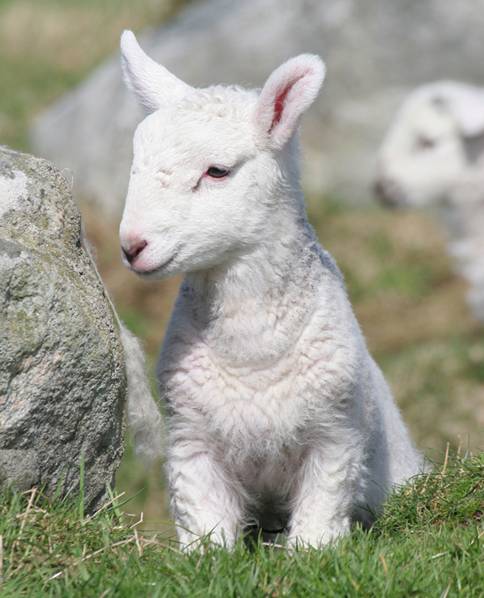 Ok, call me risk averse, but traveling to another country to have someone inject me with cells from organs or fetuses of animals isn’t high on my to-do list. I guess that’s a good thing, given the recent article in Morbidity and Mortality Weekly Report describing Q-fever in people from New York who traveled to
Ok, call me risk averse, but traveling to another country to have someone inject me with cells from organs or fetuses of animals isn’t high on my to-do list. I guess that’s a good thing, given the recent article in Morbidity and Mortality Weekly Report describing Q-fever in people from New York who traveled to
q fever
“Lamb open house” became “Q-fever open house”
 Q-fever, a serious disease caused by the bacterium Coxiella burnetii, is an important concern at petting zoos because small ruminants (sheep and goats) are commonly present at these events and they are the major source of this pathogen. The risk is greatest around adult animal at the time of birthing, and around the new…
Q-fever, a serious disease caused by the bacterium Coxiella burnetii, is an important concern at petting zoos because small ruminants (sheep and goats) are commonly present at these events and they are the major source of this pathogen. The risk is greatest around adult animal at the time of birthing, and around the new…
Cats and Q-fever
 I was reading an interesting old paper the other day about Q-fever in cats. Q-fever is a zoonotic disease caused by Coxiella burnetii. It is most commonly associated with contact with sheep, cattle and to a lesser extent goats, around the time they give birth. This bacterium is highly infectious – it…
I was reading an interesting old paper the other day about Q-fever in cats. Q-fever is a zoonotic disease caused by Coxiella burnetii. It is most commonly associated with contact with sheep, cattle and to a lesser extent goats, around the time they give birth. This bacterium is highly infectious – it…
Cooperating on Q Fever
Another surge in the number of cases of Q fever in people in the Netherlands has been reported. Prior to 2007, the average number of cases of Q fever per year in the country was only 15. In 2007 there were 192 cases, and last year there were 958 cases, making this the…
Doctors, pets and vets
 Over 50% of households in Canada and the US have pets, and the numbers are probably similar in many other countries. Pets are often considered part of the family socially but we need to consider them part of the family biologically as well. It’s clear that diseases that be transmitted between people and pets –…
Over 50% of households in Canada and the US have pets, and the numbers are probably similar in many other countries. Pets are often considered part of the family socially but we need to consider them part of the family biologically as well. It’s clear that diseases that be transmitted between people and pets –…
Lambing season and Q fever
 I have a small flock of Soay sheep and lambing season started today (too early, but better than the -30C weather from a few days ago). For someone like me, lambing season inevitably triggers thoughts about Q fever, a zoonotic disease that is most commonly associated with contact with small ruminants like sheep and…
I have a small flock of Soay sheep and lambing season started today (too early, but better than the -30C weather from a few days ago). For someone like me, lambing season inevitably triggers thoughts about Q fever, a zoonotic disease that is most commonly associated with contact with small ruminants like sheep and…
Q Fever – From goats to people (and pets!)
A major outbreak of Q fever associated with goats has occurred in the Netherlands. Over 500 human cases have been reported since the beginning of 2008. Prior to 2007, the average number of cases per year in the country was only 15.

Q fever is an infection caused by the proteobacterial organism Coxiella burnetii…